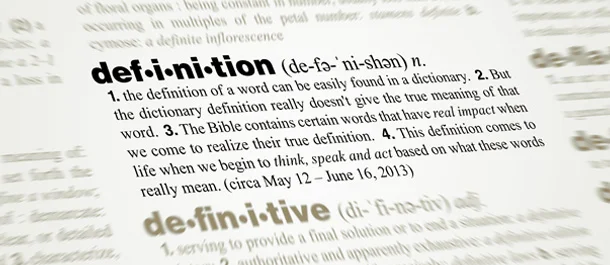Why are there so many different Data Governance definitions?
/Don't you think it's strange that a data management discipline that, amongst other activities actively promotes defining data, has so many definitions of what the discipline itself is? I think it's bewildering and to be honest very frustrating. I think that it is vital that we all mean the same thing when we are talking about data governance, but sadly this is not yet the case. It means that whenever I am presenting or running one of my courses on data governance, I start each and every one with a section on what data governance is, but I don't feel the need to do the same if the session is about Data Quality!
So why are there so many different Data Governance definitions? Pick up a Data Governance book (not that there are many to chose from) and very early on you will get a definition of data governance or an explanation of the concepts behind it. But if you pick up a Data Quality book they don’t define data quality, they dive into what causes poor data quality and why we may want to improve it. So why as a data management profession have we not yet agreed and universally understood what Data Governance is?
I don't know the definitive answer, but I believe that it could be down to the following factors:
Name
It could be due to the choice of name of the discipline after all the definition of just "governance" is fairly vague:
the action or manner of governing a state, organization, etc.
So from that rather woolly definition we can infer that "data governance" is the action of governing data, but that can mean any number of things and I believe this is a reason why many take it to mean governing access to data and hence the common misunderstanding that it is another term for data security. Others take it to mean governing how long we hold data for and confuse it with data retention.
I think (hope) that the term is used to mean the correct thing the majority of the time. It's inclusion in such things as the DAMA DMBoK and various regulations (including Solvency II), has got to be helping. However, while a number of Data Security Software vendors persist in labeling their products "data governance" confusion will persist.
Foundation / Framework
Data Governance is a framework or foundation that underpins or supports the other data management disciplines (indeed it features at the centre of the DAMA DMBoK wheel). Although there are activities and processes to follow, Data Governance is all about putting in place a framework for who does what to manage data. Other disciplines are much more about a specific set of activities e.g: data modeling or data profiling and the focus is much more on the “what” rather than the “how”.
Relationship with other disciplines
As I mentioned in the point above, whereas many data management activities can be viewed on a standalone basis, data governance is rarely carried on for it’s own sake. It enjoys a symbiotic relationship with data quality (i.e. you would not want to do one without the other) and Master Data Management initiatives are just not successful if data governance is not implemented at the same time.
Also data governance’s relationship is not just limited to those two data management disciplines - earlier on I said that it is not Data Security or Data Retention but a Data Owner (a key Data Governance Role) is usually the person who is best placed to agree who should/should not have access to their data and to agree how long it should be held for (how long it should/can be held for of course needs input from your Legal or Compliance Teams).
I don't think this issue is going to disappear overnight, after all even data management professionals can't agree on the definition. Over the years I have had a number of discussions with a well respected Data Management author who despite my best endeavours still firmly believes that Data Governance is a term interchangeable with Data Management! We must however all strive for consistency in the use of the term and it's meaning. That will make life easier for all of us. There will be one less hurdle in selling and implementing the concept if there is more of a common understanding of what it is in the first place.
What do you think? Are there are other reasons that I've missed and what do you think we as a profession can do to help clarify the situation and get a clear consistent message of what we do, more widely shared?
My free report reveals why companies struggle to successfully implement data governance. Discover how to quickly get you data governance initiative on track by downloading this free report








